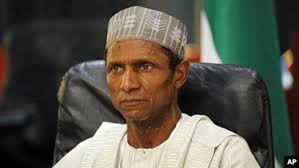News Investigators/ Nigerian leaders have been urged to immortalise former President Umaru Yar’Adua by establishing a presidential library in his honour, to commemorate his legacy of integrity and exemplary leadership.
The call was made on Saturday in Abuja during the 2nd Umaru Musa Yar’Adua Leadership Conference and Awards, organised by the Global Initiative for Leadership Success (GILS), a non-governmental organisation.
The theme of the conference was “Electoral Management Institution: Midwife of True Democracy, Development and Prosperity”.
Yar’Adua served as Nigeria’s President from May 2007 until his death in May 2010, and is widely remembered for his humility, modesty, and commitment to due process and national reconciliation.
Convener of the conference and CEO of GILS, Chief Sunnie Chukumele, said the annual event was inspired by Yar’Adua’s life of integrity and service.
“President Yar’Adua stood out as a man of principle. He publicly acknowledged the irregularities in the election that brought him to power and initiated reforms to correct them.
“One of his legacies is the late Justice Mohammed Uwais Electoral Reform Report, which remains a relevant document for electoral transformation.
“Unfortunately, successive administrations have failed to implement its recommendations,” he said.
Chukumele also praised Yar’Adua for establishing the Niger Delta Amnesty Programme, which he said helped to stabilise the oil-producing region and remains effective to this day.
He called on current leaders to pursue genuine reforms, especially in the electoral system, to consolidate democracy and national development.
In his keynote address, Prof Jideofor Adibe recommended several reforms to strengthen Nigeria’s electoral process.
He proposed removing presidential powers in appointing the Chairman of the Independent National Electoral Commission (INEC) and suggested a mixed electoral system to promote inclusiveness.
Adibe also advocated gender balance, accessibility for persons with disabilities, and the creation of a Centre for Democratic Studies to promote civic education.
He called for the establishment of an Electoral Offences Commission and recommended that at least five judges should sit on election-related appeals at the Court of Appeal.
Prof. Biodun Ajibade, speaking on “Leadership Virtues as Enhancers of Governance and Organisational Goals: President Yar’Adua’s Impact,” said research must translate into economic and developmental value.
He stressed that Yar’Adua embodied justice and accountability.
Legal practitioner Mr Bulus Atsen, called for enhanced judicial transparency and accountability in electoral matters.
He urged sanctions for lawyers who file frivolous cases and recommended the creation of an electoral offences desk within INEC.
“We must also revisit the role of the judiciary in electoral disputes. The judiciary should not become a political actor. We need to reform tribunal appointments and strengthen electoral timelines,” he added.
Mr John Elem, speaking on “The Consequences of Mismanagement of Time in National Systems,” urged national leaders to develop a clear vision for the country, noting that developed nations achieved progress through consistent national planning.
Awards were also presented to distinguished Nigerians who have contributed to national development and excellence in their professions.
NAN
